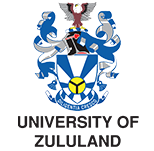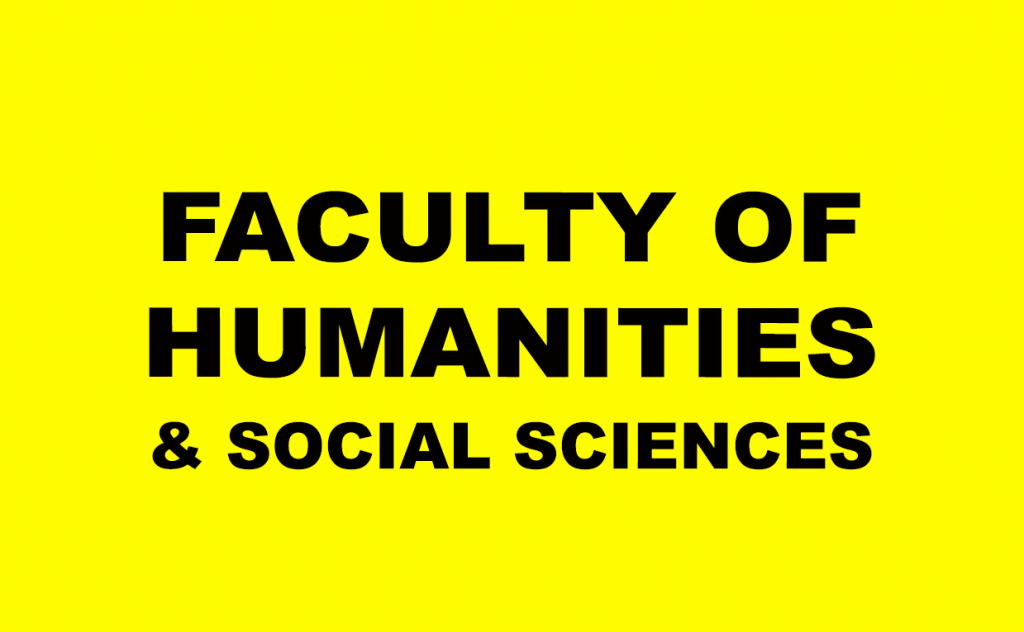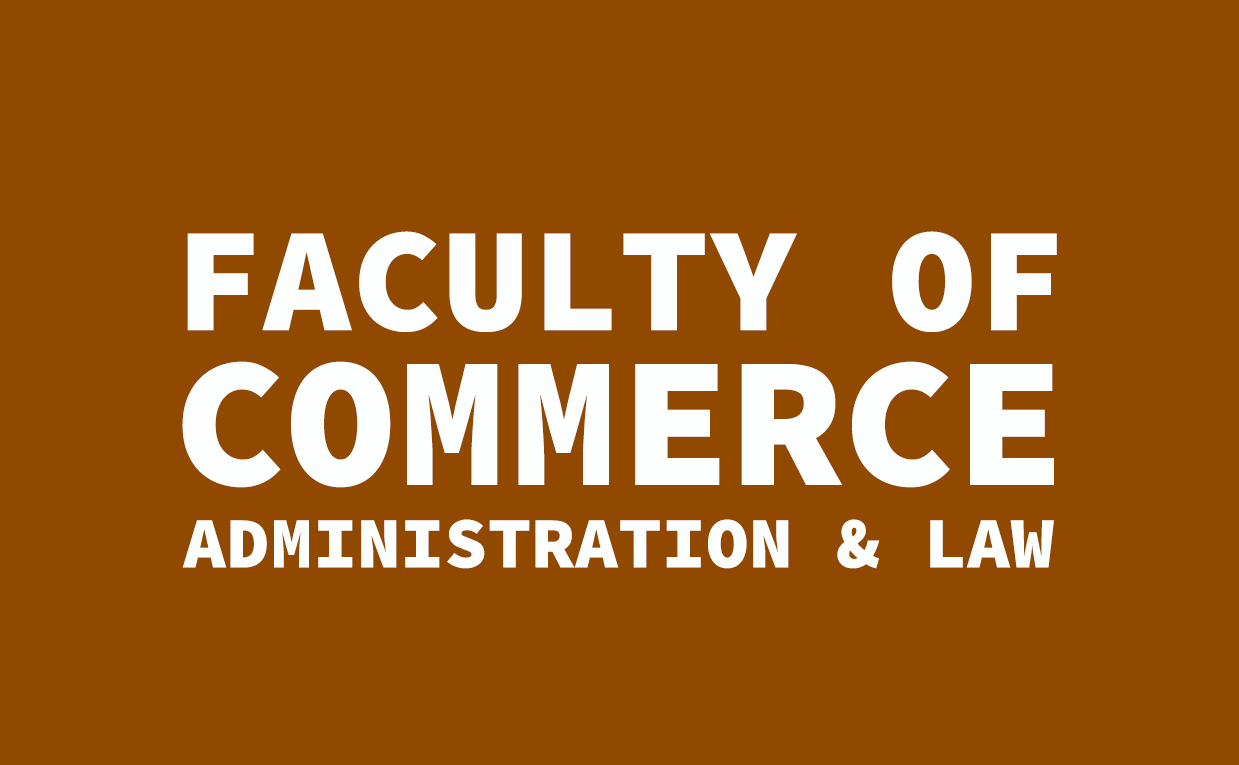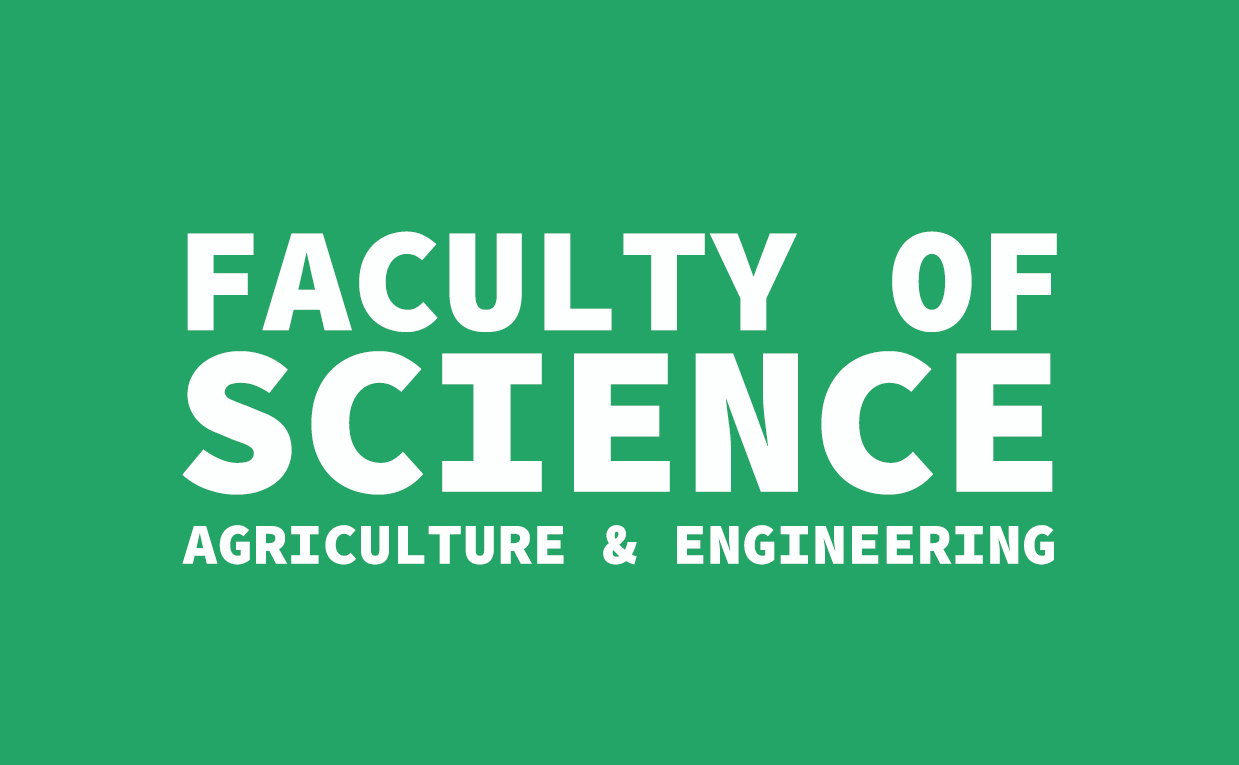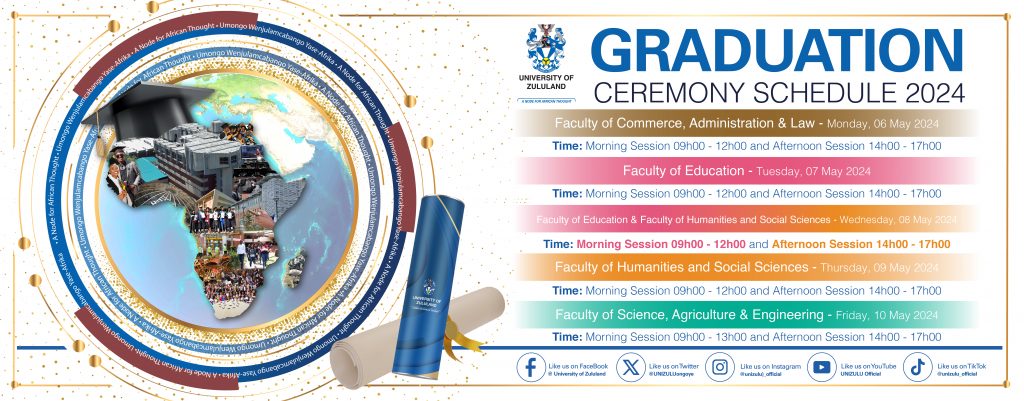Welcome to the Faculty of Humanities and Social Sciences
Richards Bay Campus
We aim to produce generations of graduates who can think with dexterity and reshape the current social, economic and political spaces and systems for Africa and globally. Our programmes are geared towards scholarship that informs equity and inclusion, challenging historical systems of oppression and privilege on multiple levels. Our faculty is diverse in discipline and background. We come together through our commitment to thoughtful, critical and indigenous scholarship while exploring varied perspectives.
DEPARTMENT OF COMMUNICATION SCIENCE
Co-ordinator
Lecturers
Mr JM Magagula, MA (UNIZULU), BA (UNIZULU)
Dr A Moonasamy D.Phil (UNIZULU), MA (UNIZULU), BA (Hons) (UNIZULU), BA (UNIZULU)
Mr MW Molefe, MTech (CUT), BA (Hons) (UNISA), Dip. STD (BOCHUM)
Ms JB Ngubane, MA, BA (Hons) [UNIZULU], Dip Info. Sys. & Tech
Mr G J Zondi , MA(UNIZULU), BA(Hons), PGDHE(UKZN)
1CPDP1/ACPDP1
Diploma in Public Relations Management
The purpose of this qualification is to provide competent and responsible Public Relations Practitioners with market-related skills which are relevant to the private and public sectors of the economy. This course is suitable for students seeking employment in the following areas: Public Relations; Business Management; Advertising; Communications Officers and; Public Speaker/Spokesperson.
FACULTY | Arts | ||
DEPARTMENT | Communication Science | ||
Qualifier | Diploma in Public Relations Management | ||
CESM Category | 05 | Communication, Journalism and Related Studies | |
CESM 1ST Qualifier | 0504 | Public Relations, Advertising and Applied Communication | |
CESM 2ND Qualifier | 050499 | Communication, Journalism and Related Studies, Other | |
MAJORS | Communication Studies 1,2,3 | Public Relations 1B, 2B, 3A | |
SAQA ID | 101140 | ||
UNIZULU Code | 1CPDP1/ACPDP1 | ||
NQF EXIT Level | 6 | ||
Entry Requirements | NSC Dip with an achievement rating of 3 (40-49%) or better in 4 recognised NSC 20-credit subjects and an achievement rating of 4 (50-59%) in English as (FAL), or 4 (50-59%) in English as Home Language. | ||
Minimum Duration of Studies | 3 years | ||
Presentation mode of subjects: | Full-time | ||
Intake for the qualification: | January | ||
Registration cycle for the subjects: | January | ||
Total credits to graduate: | 360 | ||
FIRST YEAR
SUBJECT NAME | OLD SUBJECT CODE | NEW SUBJECT CODE | SUBJECT CREDITS | NQF LEVEL | PRE-REQUISITE SUBJECT(S) |
SEMESTER 1 |
|
|
|
|
|
Communication Studies 1 | ACCS111 | 1CCS111 | 15 | 7 | Equivalent to ACOM111/ 1COM111 |
Corporate Communication | ACCC111 | 1CCC111 | 15 | 6 | Equivalent to ACOM122/ 1COM122 |
Digital Communication 1 | ACOM151 | 1COM151 | 15 | 5 | None |
Communication Skills 1 | ACOM141 | 1COM141 | 15 | 5 | None |
UNIZULU101 | AZUL100 | UZUL100 | 16 | 5 | None |
SEMESTER 2 |
|
| |||
Communication Skills 2 | ACOM182 | 1COM182 | 15 | 5 | None |
Public Relations 1B | ACOM132 | 1COM132 | 15 | 7 | None |
Journalism Skills 1 | ACJS112 | 1CJS112 | 15 | 6 | None |
Marketing & Advertising 1C | ACOM172 | 1COM172 | 15 | 5 | Equivalent to ACOM121 |
UNIZULU 101 | UZUL100 | UZUL100 | 16 | 5 | None |
TOTAL | 126 |
SECOND YEAR
SUBJECT NAME | OLD SUBJECT CODE | NEW SUBJECT CODE | SUBJECT CREDITS | NQF LEVEL | PRE-REQUISITE SUBJECT(S) |
SEMESTER 1 |
|
|
|
|
|
Journalism Skills 2 | ACJS211 | 1CJS211 | 15 | 6 | ACJS112 /1CJS112 |
Communication Research | ACOM291 | 1COM291 | 15 | 6 | None |
Marketing & Advertising 2A | ACOM241 | 1COM241 | 15 | 6 | ACOM172/ 1COM172 |
Communication Studies 2 | ACCS211 | 1CCS211 | 15 | 7 | ACCS111, Equivalent to ACOM211 |
SEMESTER 2 |
|
|
|
|
|
Communication Research Methods A | ACOM262 | 1COM262 | 15 | 6 | None |
Public Relations Ethics | APHS112 | 1PHS112 | 15 | 6 | Equivalent to APHI132 |
Public Relations 2B | ACOM222 | 1COM222 | 15 | 7 | ACOM132/ 1COM132 |
Law For Public Relations | ACOM142 | 1COM142 | 15 | 6 | Equivalent to ACOM251 |
TOTAL |
| 120 |
|
THIRD YEAR
SUBJECT NAME | OLD SUBJECT CODE | NEW SUBJECT CODE | SUBJECT CREDITS | NQF LEVEL | PRE-REQUISITE SUBJECT(S) |
SEMESTER 1 |
|
|
|
|
|
Media Studies 1B | ACOM221 | 1COM221 | 15 | 6 | None |
Communication Studies 3 | ACCS311 | 1CCS311 | 15 | 7 | 1CCS211/ACCS211, Equivalent to 1COM311/ACOM311 |
HIV & Aids Literacy | AHIV111 | 1HIV111 | 15 | 5 | None |
Public Relations 3A | ACOM331 | 1COM331 | 15 | 7 | 1COM222/ACOM222 |
Semester 2 |
|
|
|
|
|
Experiential Learning 1A | ACOM332 | 1COM332 | 60 | 6 | 1COM182, 1CJS112, 1COM132, 1COM172, 1PHS112, ACOM222, ACOM262, 1COM142 |
TOTAL |
|
|
|
|
Diploma in Public Relations Management
MODULE DESCRIPTIONS
| YEAR 1 | |
| SEMESTER 1 | |
MODULE CODE | MODULE NAME | MODULE DESCRIPTION |
1COM141/ACOM141 |
Communication Skills 1 | The purpose of this module is to guide the student or learner towards becoming an effective communicator where communication refers to all the four communication skills: speaking, writing, listening and reading. |
1COM151/ACOM151 | Digital Communications 1 | The purpose of this module is to provide students with an understanding of basic electronic communication methods. |
1CCC111/ ACCC111 | Corporate Communication 1 | The purpose of this module is to set activities involved in managing and co-ordinating all internal and external communications aimed at creating a favourable point-of-view among stakeholders on which the company depends. These are the messages issued by a corporate organization, body or institute to its audience (for example employees, media, channel partners or the general public). Learners will be able to understand an organisation’s aim to communicate the same message to all its stakeholders as well as to transmit coherence, credibility and ethics. The module provides the learner with the relevant skills to help corporates explain their mission, combine their many visions and values into a cohesive message to stakeholders as well as establish brand communication for market space. |
1CCS111/ ACCS111 |
Communication Studies 1
| The purpose of this module is to provide learners with knowledge of various forms of communication theory and research. It examines the principles and contexts of human communication. Some of the principles surveyed are perception, listening, non-verbal communication and persuasion. The primary contexts examined include interpersonal, group, organisational and public communication. |
UZUL100 |
UNIZULU 101 | The purpose of the module is to unlock the potential of students to meaningfully access the university curriculum in a way that transcends the constraints of knowledge boundaries; generating new forms of thinking and acting. UNIZULU 101 is constructed in ways that build resonance between students’ real-life experiences and histories. It is an investment to be returned by the collaborative and innovative growth of socially engaged students in a socially engaged and relevant university. |
SEMESTER 2 | ||
1COM182/ACOM182 |
Communication Skills 2
| The purpose of this module is to provide the learner with knowledge of effective communication skills in both written and the oral medium within a number of different contexts in and out of the organisation. |
1CJS112/ ACJS112 |
Journalism Skills 1
| This course has been developed for learners who are interested in pursuing a career in journalism. The qualification is designed to assist students to write news reports in accordance with the requirements of specific media news agencies. Journalism Skills I offers the learner an insight into newspaper journalism and the responsibilities of a journalist, the code of journalism standards and ethics of journalism. Learners will understand the various approaches to writing news. Furthermore, learners will be introduced to developing the art of questioning for press conferences and story construction. |
1COM132/ACOM132 | Public Relations 1B
| The purpose of this module is to provide learners with knowledge of the theory and practice of public relations and to enable them to plan the execution of public relations campaigns. |
1COM172/ACOM172 |
Marketing and Advertising 1C
| Learners will understand the purpose of advertising and marketing within the scope of public relations. They will learn that advertising is the paid, public, non-personal announcement of a persuasive message by an identified sponsor; the non-personal presentation or promotion by a firm of its products to its existing and potential customers. Furthermore, students will learn that marketing is the systematic planning, implementation and control of a mix of business activities intended to bring together buyers and sellers for the mutually advantageous exchange or transfer of products. |
UZUL100 |
UNIZULU 101 | The purpose of the module is to unlock the potential of students to meaningfully access the university curriculum in a way that transcends the constraints of knowledge boundaries; generating new forms of thinking and acting. UNIZULU 101 is constructed in ways that build resonance between students’ real-life experiences and histories. It is an investment to be returned by the collaborative and innovative growth of socially engaged students in a socially engaged and relevant university. |
YEAR 2 | ||
SEMESTER 1 | ||
ACCS211/ 1CCS211 |
Communication Studies 2
| The purpose of this module is to provide learners with knowledge of various forms of communication theory and research. It examines the principles and contexts of human communication. Some of the principles surveyed are perception, listening, non-verbal communication and persuasion. The primary contexts examined include interpersonal, group, organisation, and public communication. |
ACJS211/ 1CJS211 | Journalism Skills 2 | This course teaches how to write in the basic news style – who, what, when, where, why and how as well as so what? From the fundamental news format, the course moves onto many other types of writing such as features, sports, interviews, investigative reporting, backgrounders, broadcast news, etc. Interviewing and news-gathering techniques are covered, along with ethics and libel. Students learn to write by writing a lot. Final project is a news or feature story suitable for publication. |
ACOM241/1COM241 |
Marketing & Advertising 2A
| Learners will understand the purpose of advertising and marketing within the scope of public relations. Learners will learn the different types of advertising. They will gain insight on how an advertising agency works. Learners will also be introduced to the consumer audience and the impact of social and cultural influences on consumers. They will learn the steps in the decision-making process. Furthermore, learners will learn to create print, broadcast and internet advertising. Media selection procedures and negotiation techniques will be introduced to complete the marketing and advertising concept |
ACOM291/1COM291
|
Communication Research
| This module seeks to introduce theoretical guidelines to practices of conducting research in human and social sciences. Due emphasis is on historical and institutional contexts of research methods and methodologies. In this instance, consideration is focused on synthesizing key concepts in social theory as well as actual practice of social and cultural research. Various associated relationships will be teased out. These include connection between research and social policy, research and social theory, the philosophy of social-human sciences and subject positions (reflexivity of social researchers). This module will highlight basic and applied research methods in this challenging and opportune era of globalisation, interdisciplinary and mass democratisation. This course examines research methods in mass communication in response to innovations in communication. The role of Communication Research Methods (CRM) is to ask and answer questions about use of media technologies, consumption of media contents and media audience stratifications. In effect, CRM attempts to find out what a particular media field is about, how it is used, what its effects are and what its potential is. Learners will therefore engage with arising issues in a background of evolving communication like the World Wide Web, corporate communication and e-commerce. |
SEMESTER 2 | ||
ACOM222/1COM222 |
Public Relations 2B
| This module provides students with the skills to understand media relations, analyse public relations problems, plan, implement and evaluate public relations campaigns and to distinguish between public relations practice in business, government and non-profit organisations. |
ACOM262/1COM262 |
Communication Research Methods A
| This module aims to provide students with an understanding of the various research methods in communication science. The course examines research methods in mass communication in response to the need for communication initiatives. Communication Research Methods A seeks to ask and answer questions about the use of media technologies, consumption of media contents and the media audience in order to advance an organisation’s effectiveness. Learners will therefore engage in the evolving sphere of communication such as the World Wide Web, corporate communication, e-commerce and online surveys that Web 2.0 provides. |
ACOM142/1COM142 | Law for Public Relations
| The purpose of this module is to provide learners with an understanding of the nature, techniques and skills associated with the role of rhetoric and persuasion in politics, the effects of political communication and the media and channels of political communication. |
APHS112/ 1PHS112 | Public Relations Ethics
| This module is intended for students studying towards a diploma in Public Relations who will be confronted with issues of public relations ethics at their future workplaces. The module deals with ethical issues in the context of various situations arising in public relations. It applies selected ethical theories to the process of decision-making by public relations officials. |
YEAR 3 | ||
SEMESTER 1 | ||
ACOM331/1COM331 |
Public Relations 3A
| This module provides students with the skills to understand and analyse management techniques in public relations. |
ACCS311/ 1CCS311 | Communication Studies 3
| The aim of this module is to provide learners with knowledge of the role of communication in the global context, a survey of cultural imperialism and international relations. It also seeks to enable them to research the international flow of news and entertainment, the New World Communication and Information Order and international communication policy. |
ACOM221/1COM221 |
Media Studies 1B
| The purpose of this module is to provide learners with knowledge of media institutions, functionalist and critical media theories as well as media issues. It also aims to enable them to research topics such as media institutional practices, ownership, regulation, censorship, media and democratization as well as the power and functions of the media. |
AHIV111/ 1HIV111 |
HIV & AIDS Literacy
| This module seeks to empower students to make a difference in dealing with HIV and AIDS crises; to provide students with information on HIV and AIDS prevention and management as well as to expose students to various areas on which HIV and AIDS impacts. |
SEMESTER 2 | ||
ACOM332/1COM332 |
Experiential Learning 1A
| This module provides students with real world work experience. It will provide students with skills to plan, analyse public relations problems, implement and evaluate public relations campaigns as well as to distinguish between public relations practice in business, government and non-profit organisations |
A Node for African Thought
Correspondence and Enquiries:
The Registrar, University of Zululand, Private Bag X1001, KwaDlangezwa, 3886
Telephone: 035 902 6950/6923
Email: KhumaloNM@unizulu.ac.za
Physical Address:
2 Cent Circle, Arboretum, Richards Bay
Postal Address:
Private Bag X1041, Richards Bay, 3900
© University of Zululand: All Rights Reserved
